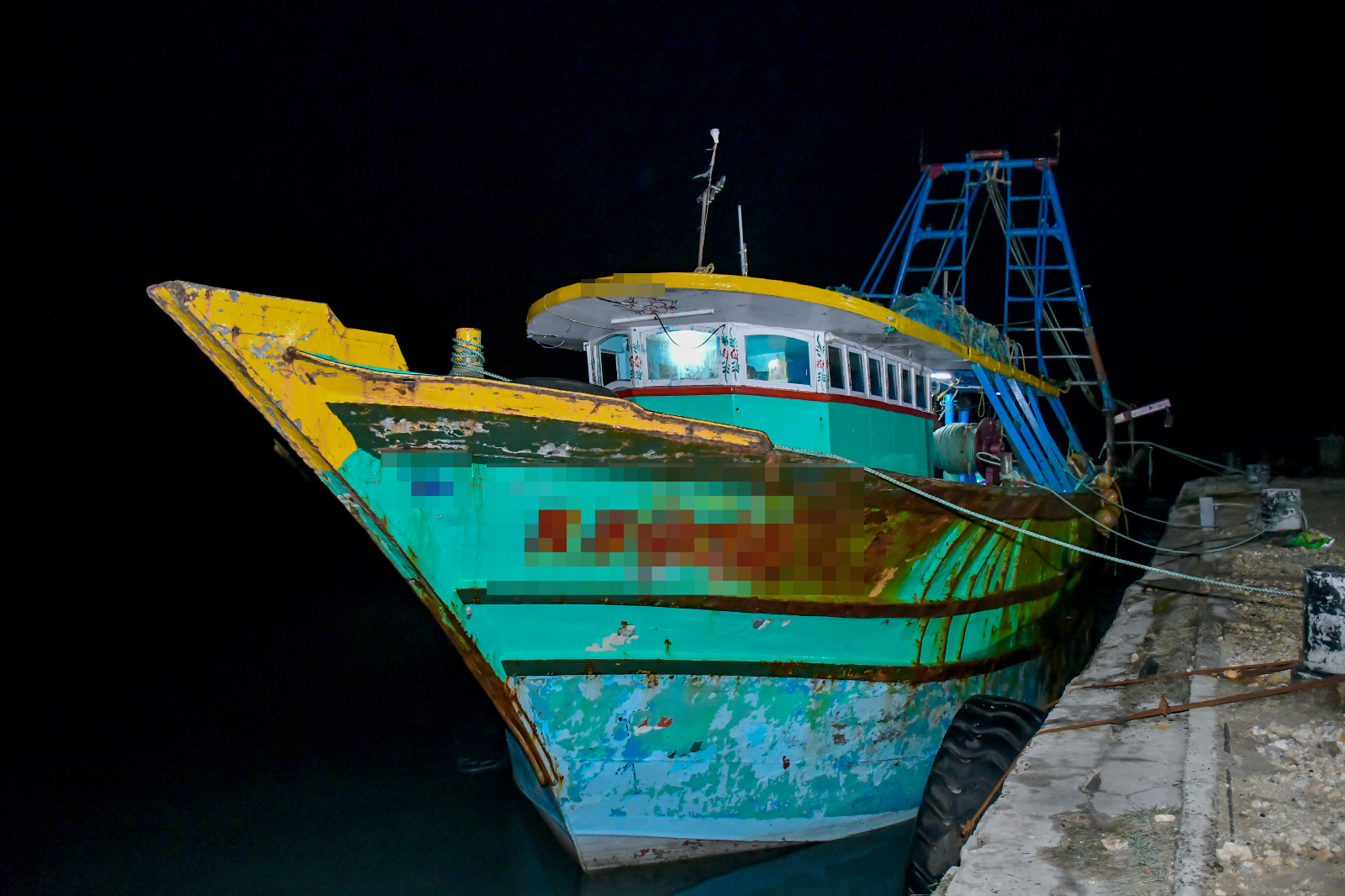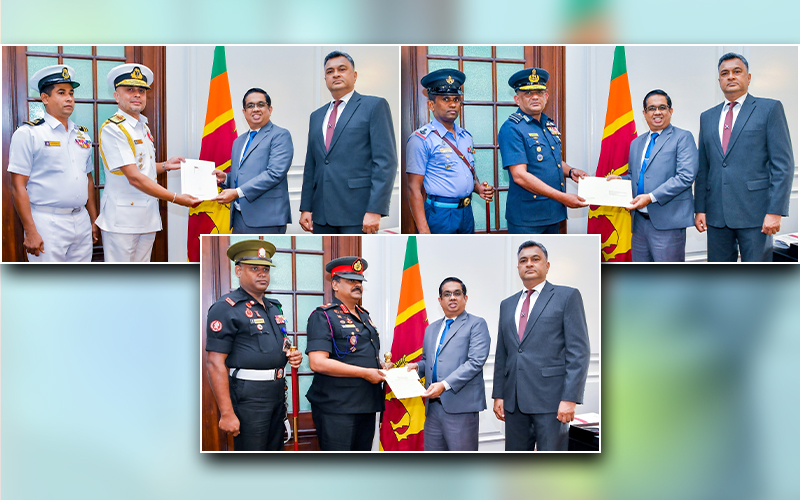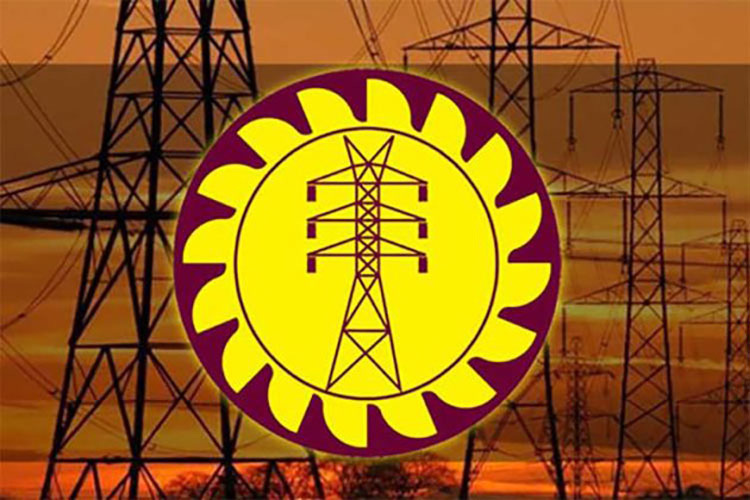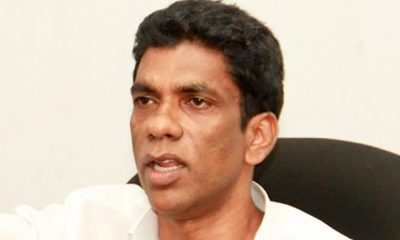News
UNP Deputy Leader questions grey matter of ruling politicians

UNP Deputy Leader Ruwan Wijewardene says that there is a serious doubt whether some ruling party politicians had actually attended school or what type of education some of them had during their schooling when considering the statements, the latter make with regard to ongoing trade union action by teachers and principals.
Speaking to UNP youth wing members during a meeting at the Sirikotha yesterday, Wijewardene said that some ruling party politicians were instigating people against striking teachers. “Some threaten to impale teachers on poles if they do not report to work on Thursday (21). Those politicians have got their thugs to threaten and intimidate teachers. Some ministers are speaking of getting the police to act against teachers. Teacher unionists complain that persons who identify themselves as intelligence officers visit their homes and threaten to drag them by force to the schools. Some MPs speak on TV asking people to hurl rotten eggs at teachers. We have a doubt whether these people had attended schools at least for a single day,” Wijewardene said.
He said that it was a fundamental right recognized by the Constitution of the country for anyone to exercise their trade union rights and as per the provisions of the Labour Code those engaged in trade union actions could not be punished. “This is the government that came to power stating that they had been voted in by the maha sangha, teachers, doctors, farmers and labourers. Now the very same government sees the striking teachers as a bunch of terrorists. The government in the face of a strike by teachers and principals has stooped down to the level of village thugs. We do not think that threats, intimidation and harassment would solve this problem. The government instead should sit down to talk to the teachers and address their genuine grievances,” Wijewardene said.
The UNP Deputy Leader said that the government was engaged in a campaign to destroy the country’s agro-economy and in the meantime destroying its education system.
News
Navy seize an Indian fishing boat poaching in northern waters

During an operation conducted in the dark hours of 01 Jan 26, the Sri Lanka Navy seized an Indian fishing boat and apprehended 11 Indian fishermen while they were poaching in Sri Lankan waters, off Kovilan of Kareinagar, Jaffna.
The Northern Naval Command spotted a group of Indian fishing boats engaging in illegal fishing, trespassing into Sri Lankan waters. In response, naval craft of the Northern Naval Command were deployed to drive away those Indian fishing boats from island waters off Kovilan.
Meanwhile, compliant boarding made by naval personnel resulted in the seizure of one Indian fishing boat and apprehension of 11 Indian fishermen who continued to engage in illegal fishing in Sri Lankan waters.
The seized boat (01) and Indian fishermen (11) were handed over to the Fisheries Inspector of Myliddy, Jaffna for onward legal proceedings.
Latest News
Tri-Forces donate LKR. 372 million, a day’s pay of all ranks to ‘Rebuilding Sri Lanka’ Fund

Members of all ranks from the Sri Lanka Army, Sri Lanka Navy and Sri Lanka Air Force have collectively donated a day’s basic salary to the ‘Rebuilding Sri Lanka’ Fund, which was established to restore livelihoods and rebuild the country following the devastation caused by Cyclone Ditwah.
Accordingly, the total contribution made by the Tri-Forces amounts to LKR. 372,776,918.28.
The cheques representing the financial contributions were handed over on Wednesday (31 December) at the Presidential Secretariat to the Secretary to the President, Dr. Nandika Sanath Kumanayake.
The donations comprised LKR. 250 million from the Commander of the Army, Major General Lasantha Rodrigo; LKR. 73,963,879.71 from the Commander of the Navy, Rear Admiral Kanchana Banagoda and LKR. 48,813,038.97 from the Commander of the Air Force, Air Marshal Vasu Bandu Edirisinghe.
Secretary to the Ministry of Defence, Air Vice Marshal Sampath Thuyacontha, was also present on the occasion.
News
CEB demands 11.57 percent power tariff hike in first quarter

The Ceylon Electricity Board (CEB) has submitted a proposal to the Public Utilities Commission of Sri Lanka (PUCSL) seeking an 11.57 percent increase in electricity tariffs for the first quarter of 2026, citing an estimated revenue shortfall and additional financial pressures, including cyclone-related damages.
According to documents issued by the PUCSL, the proposed tariff revision would apply to electricity consumption from January to March 2026 and includes changes to both energy charges and fixed monthly charges across all consumer categories, including domestic, religious, industrial, commercial and other users.
Under the proposal, domestic electricity consumers would face increases in unit rates as well as fixed monthly charges across all consumption blocks.
The CEB has estimated a deficit of Rs. 13,094 million for the first quarter of 2026, which it says necessitates the proposed 11.57 per cent tariff hike. The utility has noted that any deviation from this estimate whether a surplus or a shortfall will be adjusted through the Bulk Supply Tariff Adjustment (BSTA) mechanism and taken into account in the next tariff revision.
In its submission, the CEB said the proposed revision is aimed at ensuring the financial and operational stability of the power sector and mitigating potential risks to the reliability of electricity supply. The board-approved tariff structure for the first quarter of 2026 has been submitted to the PUCSL for approval and subsequent implementation, as outlined in Annex II of the proposal.
The CEB has also highlighted the financial impact of Cyclone Ditwah, which it said caused extensive damage to electricity infrastructure, with total losses estimated at around Rs. 20 billion. Of this amount, Rs. 7,016.52 million has been attributed to the first quarter of 2026, which the utility said has a direct bearing on electricity tariffs.
The CEB warned that if external funding is not secured to cover the cyclone-related expenditure, the costs incurred would need to be recovered through electricity tariffs in the second-quarter revision of 2026.
Meanwhile, the PUCSL has said that a decision on whether to approve the proposed tariff increase will be made only after following due regulatory procedures and holding discussions on the matter.
By Sujeewa Thathsara ✍️
-

 Sports5 days ago
Sports5 days agoGurusinha’s Boxing Day hundred celebrated in Melbourne
-

 News3 days ago
News3 days agoLeading the Nation’s Connectivity Recovery Amid Unprecedented Challenges
-

 Sports6 days ago
Sports6 days agoTime to close the Dickwella chapter
-

 Features4 days ago
Features4 days agoIt’s all over for Maxi Rozairo
-

 News6 days ago
News6 days agoEnvironmentalists warn Sri Lanka’s ecological safeguards are failing
-

 News4 days ago
News4 days agoDr. Bellana: “I was removed as NHSL Deputy Director for exposing Rs. 900 mn fraud”
-

 News3 days ago
News3 days agoDons on warpath over alleged undue interference in university governance
-

 Features6 days ago
Features6 days agoDigambaram draws a broad brush canvas of SL’s existing political situation













